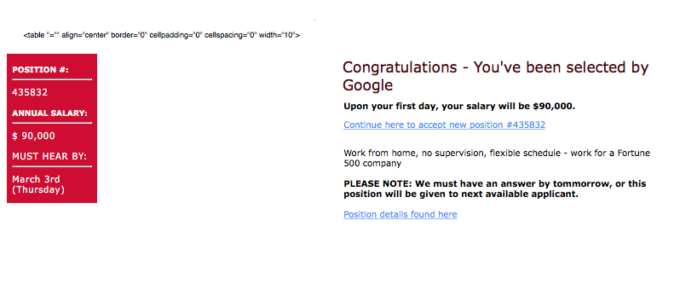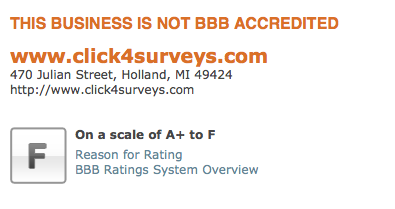Google wants to hire me! And they’ll pay me $90k a year! I’ll bet you’ve seen this email, too. So, how do you sign up? The answer is, by giving away all of your personal information to a scammer who doesn’t care where you live, what you do now, or what skills you have. No, […]
Google job email — do not be fooled by this scam
Tell a Friend
If you liked this post, please be sure to share it with a friend! Send an email or share with Facebook, X, or LInkedIn.





Recent Comments